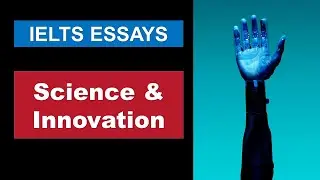𝐈𝐄𝐋𝐓𝐒 𝐌𝐲𝐭𝐡𝐬 𝐚𝐧𝐝 𝐀𝐧𝐬𝐰𝐞𝐫𝐬
IELTS myths abound. Let me dispel some of the most common misconceptions.
1. More Difficult Than Other English Tests: A widespread myth is that the IELTS is more difficult than other English language proficiency tests such as the TOEFL or PTE. The difficulty of these tests can be subjective and varies depending on a person's strengths in language skills. Each test has a different focus and format which might suit different individuals.
2. British English Only: Many believe that IELTS favours British English exclusively. While it is true that the test originated in the UK and commonly uses British spelling and conventions, it accepts both British and American English responses as correct. It is designed to assess the language skills of non-native English speakers globally.
3. The Higher the Score, the Better the English: There is a misconception that achieving a band score of 9 means you are a perfect English speaker. However, the IELTS scores are indicative of proficiency levels appropriate for academic and migration purposes, not absolute measures of language perfection.
4. Studying Right Before the Test Will Significantly Improve Scores: Some candidates believe that intense cramming just before the test date can significantly boost their score. However, while last-minute study can refresh key concepts, real improvements come from consistent, long-term preparation and practice.
5. Essay Length Guarantees a High Score: Another common myth is that writing more words than the recommended 250 for Task 2 and 150 for Task 1 will automatically lead to higher scores. While it is important to write enough to clearly express ideas, quality, coherence, and adherence to the topic are much more crucial than mere quantity.
6. Certain Test Centres Offer Easier Tests or Scoring: Some test-takers believe that certain IELTS test centres are easier than others or that the grading is more lenient. In reality, the IELTS maintains strict standardisation procedures and quality controls to ensure consistency and fairness in test delivery and scoring across all centres worldwide.
7. Speaking With a British or American Accent Boosts Scores: There is a misconception that adopting a British or American accent can improve a candidate's score in the speaking section. The truth is, the test assesses the ability to communicate effectively, not the style of English accent.
8. IELTS Preparation Is Only About Language Skills: While strong language skills are essential, understanding the test format and time management are equally critical. Many overlook the strategic aspects of test taking, such as familiarising themselves with the types of questions asked and practicing under timed conditions.
9. IELTS Is Not Useful for Emigrating to the USA: Some believe that the IELTS is not accepted for immigration purposes in the USA. In reality, while the TOEFL has been traditionally popular, many American institutions, including immigration bodies, do accept IELTS scores for various applications.
10. Cheating Is Possible in IELTS: Some believe that cheating, whether through impersonation or using pre-learnt answers, can help improve scores. Not only is cheating practically impossible given the stringent security measures, but attempts at fraud lead to disqualification and serious consequences.
𝗙𝗥𝗘𝗘 𝗣𝗗𝗙:
https://1drv.ms/b/s!AnNsDUW_3Y5ngfZWL...
𝗪𝗥𝗜𝗧𝗜𝗡𝗚 𝗖𝗢𝗥𝗥𝗘𝗖𝗧𝗜𝗢𝗡 𝗦𝗘𝗥𝗩𝗜𝗖𝗘
https://www.ieltsanswers.com/writing-...
𝗪𝗥𝗜𝗧𝗜𝗡𝗚 𝗘𝗕𝗢𝗢𝗞
https://www.ieltsanswers.com/product/...































